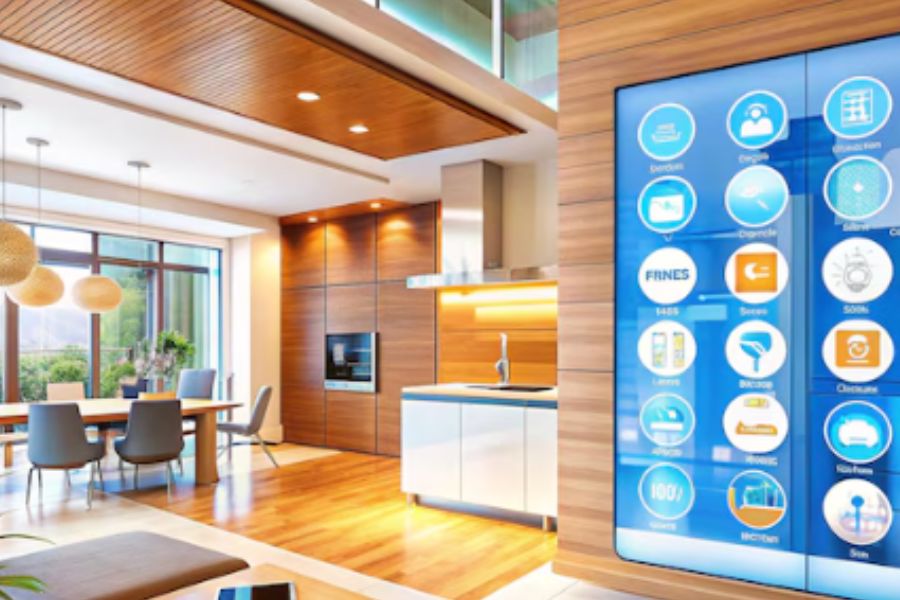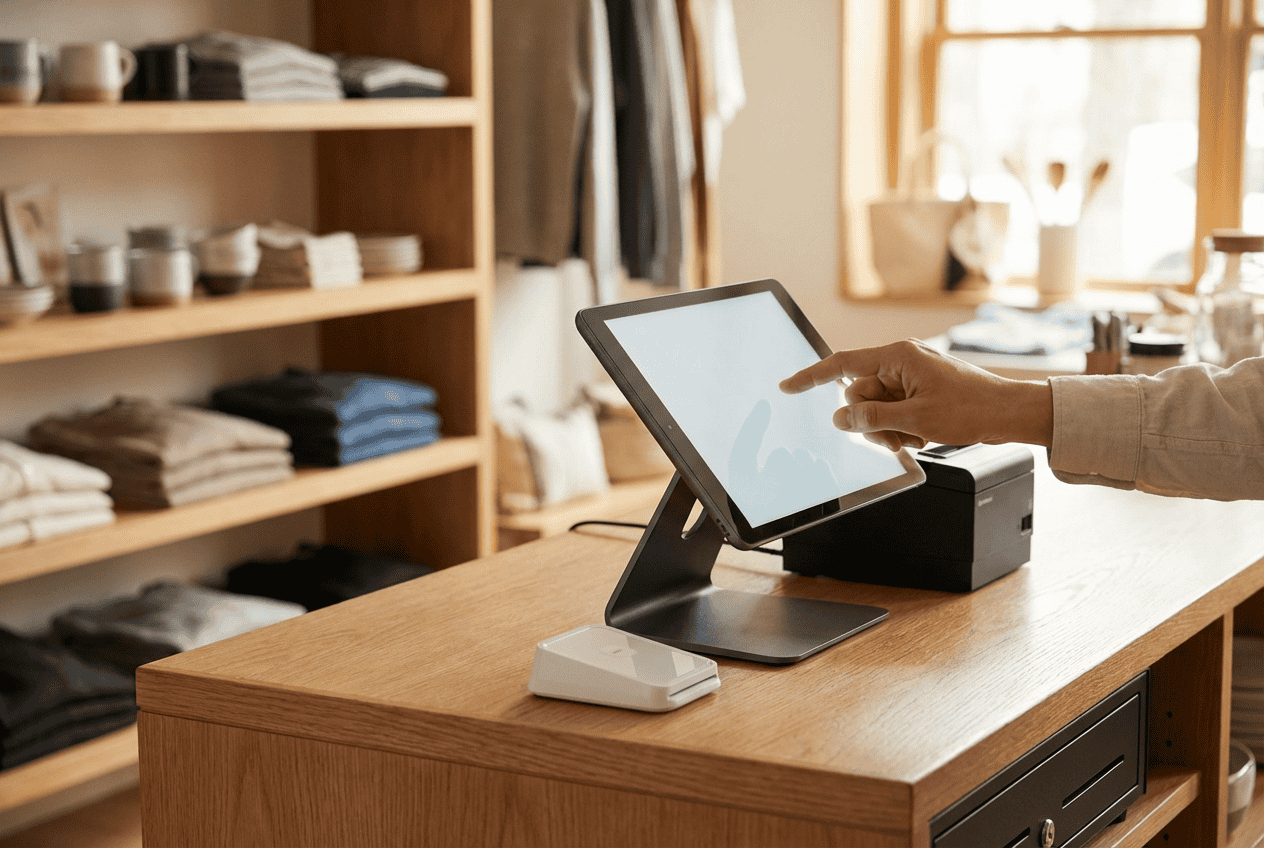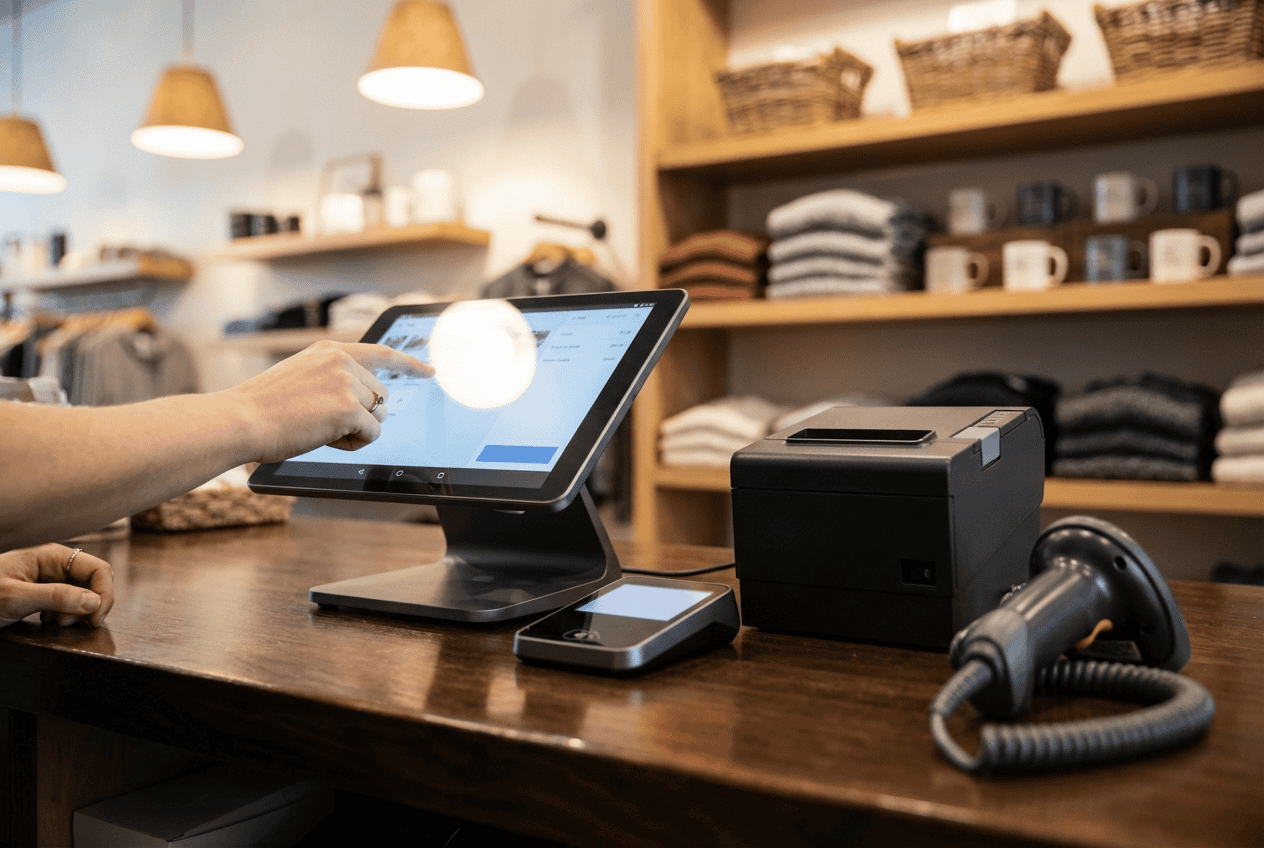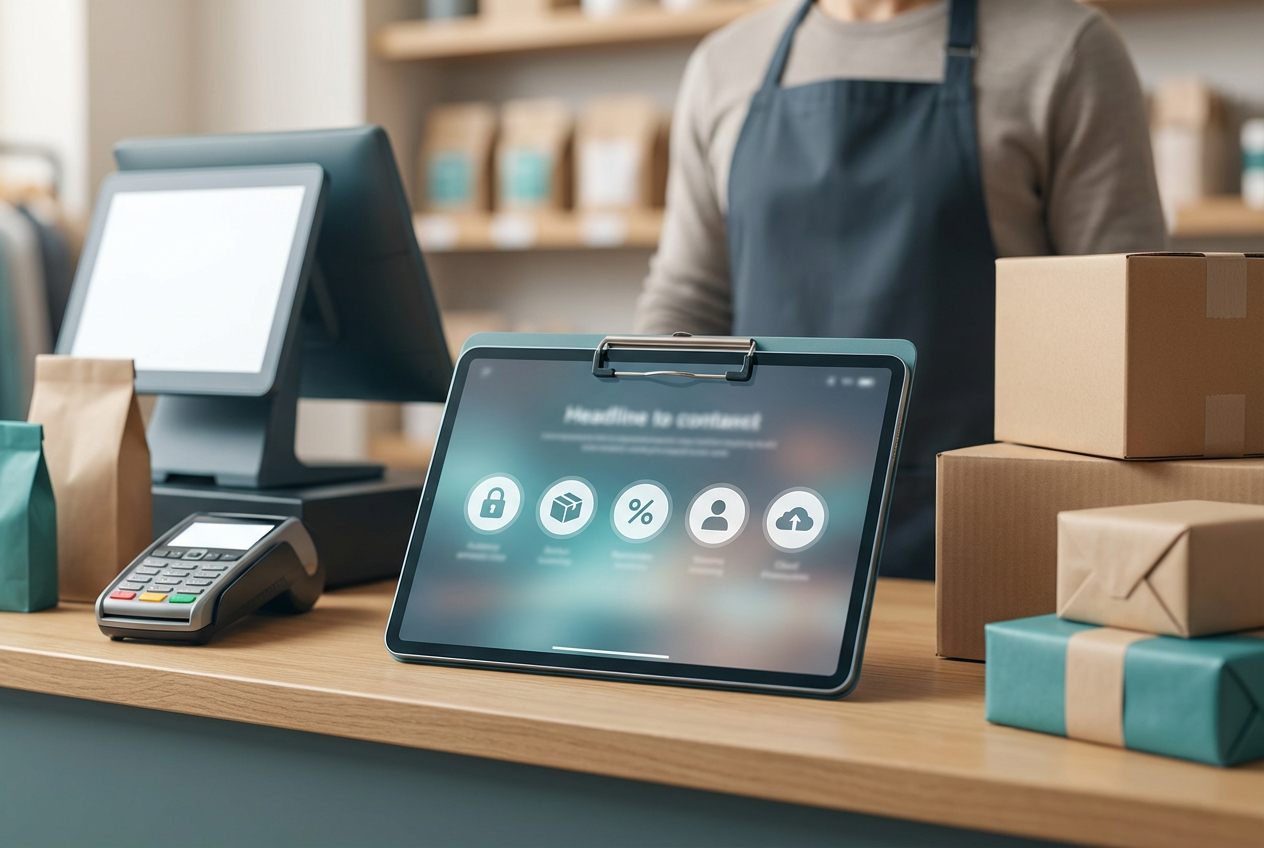Managing orders and inventory within Indonesia’s furniture retail sector demands precision and adaptability. The complexity arises from factors such as customizable products, high-value bulky items, and distributed stock across showrooms and warehouses. Conventional point-of-sale solutions fall short when it comes to addressing these layers, requiring a specialized approach that accommodates intricate workflows and local business requirements.
In this article, the focus lies on addressing the complexities faced by furniture retailers in Indonesia when managing orders and inventory. Besides that, exploring how a specialized POS system for furniture store Indonesia can adapt to these unique needs reveals pathways for improving workflow accuracy, customer service, and compliance with local regulations.
Challenges In Managing Furniture Orders And Inventory In Indonesia
The Indonesian furniture industry is experiencing significant growth, with the market projected to expand by USD 3.99 billion between 2023 and 2028, reflecting a compound annual growth rate (CAGR) of 14.2%.

As demand rises, retailers face growing complexity in operations, requiring stronger systems to keep pace with customer expectations and manage the intricacies of high-value, customized inventory.
Key Operational Challenges:
- Custom Orders: Managing variations in size, color, and material for made-to-order furniture calls for systems capable of handling complex configurations while supporting accurate and consistent quotations.
- Large and High-Value Items: Bulky and expensive furniture requires dedicated logistics and inventory coordination to minimize damage risks and support reliable delivery timelines.
- Complex Inventory Across Showrooms and Warehouses: Coordinating stock levels across multiple locations demands integrated systems to provide real-time visibility and prevent stock outs or overstocking.
- Accurate Quotations, Delivery Scheduling, and Deposit Tracking: Precise quotes, timely delivery arrangements, and clear deposit records rely on systems that consistently track customer interactions and financial activities across channels.
- Tax Compliance and Local Regulations: Adhering to Indonesia’s tax laws, including PPN and Faktur Pajak requirements, necessitates systems capable of generating compliant invoices and reports.
Addressing these challenges is crucial for retailers aiming to capitalize on the growing market and meet the evolving demands of Indonesian consumers. Choosing the right POS system for furniture store Indonesia supports smoother operations and helps businesses stay competitive in this dynamic landscape.
Must-Have Features Of POS System For Furniture Store Indonesia To Handle Complexity With Ease
Advanced Order Management
Furniture sales often begin with customer consultations rather than instant purchases. Buyers want to customize configurations, review material samples, and schedule deliveries. A capable POS system for furniture store Indonesia should manage the entire lifecycle, quote generation, partial payments, change orders, and delivery coordination while maintaining accuracy and a consistent experience across all customer touchpoints.
Beyond initial quoting, systems must also handle post-order modifications such as changes in fabric or dimensions, often requiring dynamic pricing and status tracking. A POS that captures these variations in a structured way improves communication across departments and minimizes costly errors. These capabilities are particularly valuable in Indonesia, where custom-built orders are common and expectations for service precision are rising.
Smart Inventory Control
Inventory complexity is inherent in furniture retail. A single SKU can represent dozens of variations such as size, material, color, finish, each with its own stock location and supplier. A furniture-focused POS must provide real-time visibility across all showrooms and warehouses, automatically reflecting availability by variant and location to reduce overselling and improve stock turnover.
Furthermore, systems should support warehouse transfers, buffer stock thresholds, and vendor-level tracking. In Indonesia, where delivery lead times may vary depending on location or supplier region, this kind of visibility reduces friction in logistics and improves fulfillment timelines. This is especially critical when managing bulky items with limited in-store storage.
►►► Optimal solution set for businesses: Multi store POS, Next-gen POS, Inventory Management Software (MSI), Self Service, Automation, Backorders

Integrated Business Tools
The furniture e-commerce market in Indonesia is undergoing a notable shift, with the penetration rate expected to climb from 9.14% in 2024 to 15.04% by 2029, marking a steady year-on-year rise. This trend signals a deepening reliance on digital channels among consumers, creating new operational demands for furniture retailers, particularly in how they manage and synchronize sales across touchpoints.
A modern POS system for furniture store Indonesia plays a central role in this eCommerce environment—not as an isolated tool, but as a connected hub that unifies customer, product, and financial data.
When integrated with ERP platforms, accounting systems, ecommerce sites, and CRM tools, the POS acts as the operational backbone. This centralization provides a clearer view of business performance, improves cross-department coordination, and supports decisions on pricing, resource allocation, and promotional planning—all essential for adapting to a retail landscape increasingly shaped by online growth.
For furniture chains operating across cities or provinces in Indonesia, this unified infrastructure is particularly useful. It allows remote access to inventory and transaction reports, supports centralized promotions or loyalty programs, and enables multi-location stock planning. Without these capabilities, decision-making becomes reactive and scattered across disparate tools.
Localization for Indonesia
Compliance with Indonesia’s tax framework including PPN (VAT) and electronic Faktur Pajak generation, is a foundational requirement. The POS system for furniture store Indonesia must issue accurate tax invoices and maintain audit trails that align with local government standards. This avoids penalties and builds trust with large-scale buyers who require compliant documentation for their own reporting.
Localization also includes payment preferences, such as support for QRIS (QR Code Indonesian Standard), installment plans, or integration with local banks and gateways.
Moreover, multilingual support (Bahasa Indonesia and English) helps staff across regions work comfortably. These localized features reflect real-world business practices and make daily operations smoother for Indonesian furniture retailers.
How ConnectPOS Solves These Problems for Furniture Stores
Furniture retailers deal with layered sales processes, item customization, inventory spread across branches, and local tax documentation. Systems built for general retail tend to fall short in this kind of setup. ConnectPOS is a POS system for furniture store Indonesia that responds to these demands through a solution built around the actual way furniture stores operate in Indonesia.
It supports custom workflows, allows real-time visibility of stock, and connects directly with ecommerce and backend tools. The result is a system that supports showrooms, warehouses, and online platforms without loss of control or accuracy.
Key Capabilities
- Retail Structure Fit: ConnectPOS works with long sales cycles involving in-store consultations, quotation revisions, deposits, and delivery tracking. It supports pricing variability and product adjustments without breaking the process flow.
- Custom Item Support and Stock Accuracy: The furniture store POS system from ConnectPOS tracks product variants such as color, size, and material, all linked to live stock levels across warehouses, showrooms, and online stores. This allows the sales team to check availability and respond quickly to customer requests.
- ERP and eCommerce Integration: ConnectPOS works with Magento POS, Shopify POS, WooCommerce POS, and key backend systems. It handles data flow between departments and helps maintain a unified view across all tools involved in a retail operation.
- Multi-Outlet and Warehouse Setup: It supports chain-level inventory coordination, sales tracking by location, and branch-specific controls. This suits brands working across cities or operating warehouse-based distribution in Indonesia.
- Compliance and Local Fit: ConnectPOS supports Bahasa Indonesia, PPN calculations, and electronic invoice formats compliant with government standards. It also supports payment integrations familiar to Indonesian buyers.
- Transparent Model and Support Access: The pricing is clear and fixed, with no hidden clauses. Businesses can count on product specialists who understand how furniture retail works, from the sales floor to the back office.
FAQs
What should a furniture store expect in terms of warehouse and delivery integration?
A connected system should pass order details directly to warehouse and logistics teams. This includes notes on assembly, packaging, or special handling so that deliveries match customer expectations.
Is it possible to manage deposits and installment payments in the POS?
Yes. A capable POS system should allow partial payments, link them to specific orders, and update financial reports accordingly. This helps keep track of balances, especially for higher-ticket items.
What kind of reporting should decision-makers expect?
A good system should consolidate sales, inventory, and customer data from all store locations. Managers should be able to view trends, spot issues, and act on them without needing to extract and reprocess data manually.
Can the POS system for furniture store Indonesia integrate with online stores?
Yes. It should sync with major e-commerce POS platforms to keep stock levels aligned and orders flowing into a single central system. This helps maintain consistency between physical and digital storefronts.
How do staff handle product transfers between locations?
The system should support internal stock transfers with status tracking. Staff can request, approve, and receive items across locations using the same interface—avoiding miscommunication and manual errors.
Conclusion
Furniture retailers in Indonesia face unique operational hurdles tied to product variety, logistics, and regulatory compliance. A well-structured POS system for furniture store Indonesia responds directly to these demands, providing tools for detailed order management, real-time inventory visibility, and integrated financial tracking. This approach supports both the physical and digital sides of retail, enabling businesses to respond quickly to market dynamics and customer expectations.
Adopting such a solution positions furniture stores to manage complexity with greater confidence and control. Explore how ConnectPOS can simplify these challenges and bring clarity to your operations. Take the next step toward a more organized, responsive furniture business by connecting with ConnectPOS today.
►►► Optimal solution set for businesses: Shopify POS, Magento POS, BigCommerce POS, WooCommerce POS, NetSuite POS, E-Commerce POS




